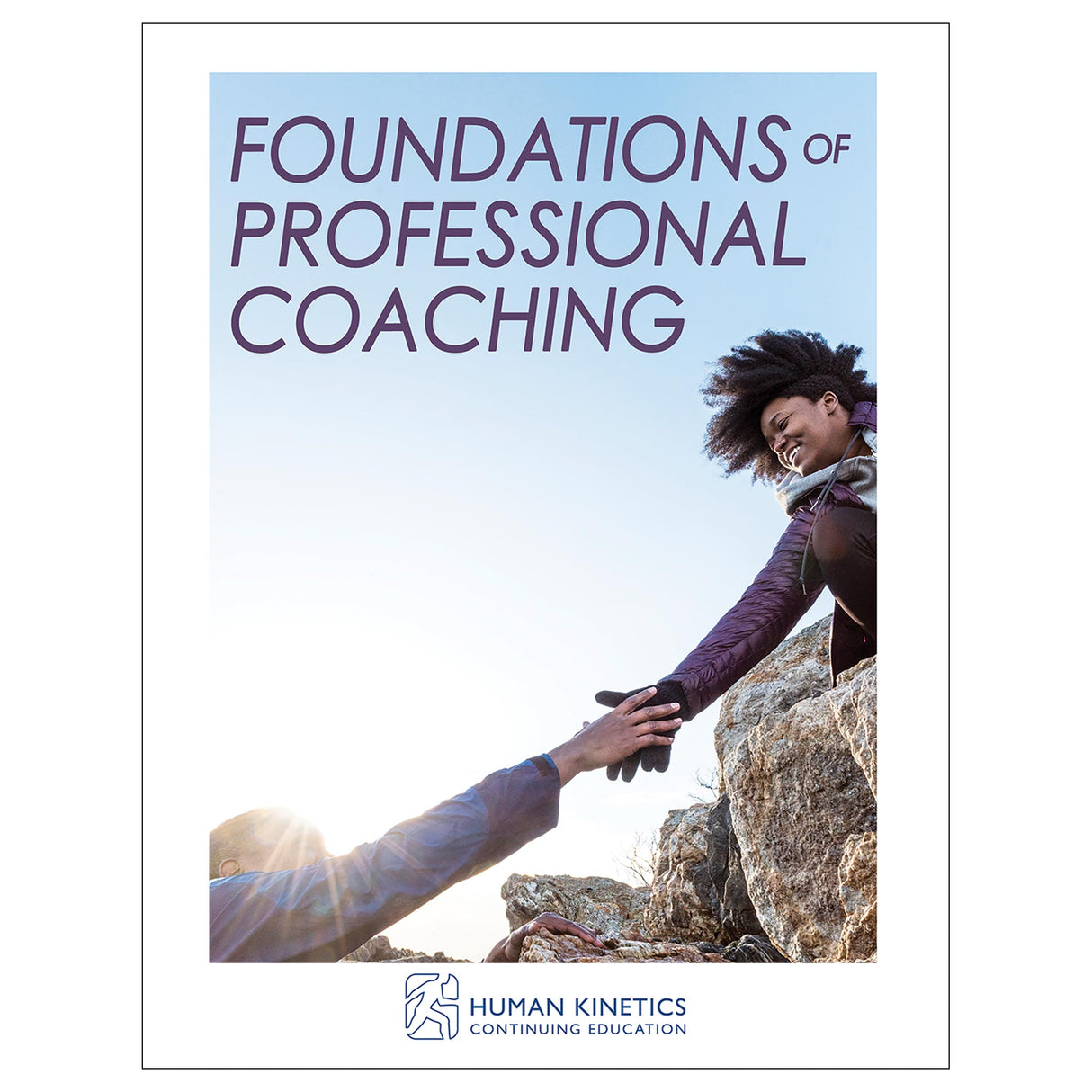Foundations of Professional Coaching Online CE Course With Ebook
Author: Human Kinetics
$139.00 USD
Human Kinetics strongly recommends that you complete your exam within the calendar year of your date of purchase to ensure approved credits do not expire for your organization.
- Foundations of Professional Coaching ebook
- Online study guide
- Online continuing education exam
Foundations of Professional Coaching is the essential guide to helping you build elite coaching skills and create influential coaching relationships. Offering foundational concepts and underlying principles of coaching, this course will help all types of coaches cultivate a growth environment that encourages lasting change and maximizes each client’s potential in their personal and professional lives.
Grounded in the International Coaching Federation's eight core competencies, the ebook covers the theoretical basis of professional coaching models and the application of those models in modern coaching. Enrich your coaching skills as you learn to embody the coaching mindset:
- Understand the journey of behavior change with key models on the change process.
- Employ inclusive frameworks for working with clients to set and pursue goals and overcome challenges.
- Adhere to ethical protocols, such as how to appropriately respond to clients' identity, environment, values, and beliefs.
- Cultivate trust and safety in the coaching relationship with respect to power and relationship dynamics.
- Establish presence as a coach and develop a coach’s voice.
- Communicate effectively, with active listening and appropriate areas of inquiry.
Personal stories offer insights into meaningful coaching engagements, providing context for the concepts and their application to a wide variety of coaching interests, including those related to health and lifestyle wellness, professional and career concerns, and leadership development.
Once you complete the course and pass the exam, you can print a certificate for continuing education credits.
Learning Objectives
- List the four key components in the International Coaching Federation’s definition of coaching.
- Compare the four types of learning and their effectiveness.
- Describe the importance of neuroscience and its application to coaching.
- Describe the methods that best help clients establish their goals.
- Explain the importance of the International Coaching Federation’s code of ethics for coaches.
- Discuss the importance of the coach–client contractual agreement and the critical components of such a contract.
- Explain transference and its importance in the coach–client relationship.
- Summarize the factors necessary to develop trust and safety in the relationship with a client.
- Explain how coaches can best develop presence in order to focus intently on client communication.
- List the multiple ways in which coaches can carefully communicate their own ideas, opinions, insights, hunches, and information to clients.
- Discuss the importance of humility when serving clients.
- Summarize the International Coaching Federation’s description of a coaching mindset.
Audience
A continuing education course for personal trainers, fitness instructors, health and wellness coaches, sport coaches, and strength and conditioning professionals.Acknowledgments
Part I. The Field of Coaching
Chapter 1. Evolution of a Coaching Profession
Chapter 2. The Roots of Coaching
Chapter 3. Goals, Growth, and Transformation
Part II. Guiding Models
Chapter 4. Understanding Change
Chapter 5. Coaching Models
Part III: The Coach’s Skill Set
Chapter 6. The Ethical Coach
Chapter 7. Partnering in Agreements
Chapter 8. Cultivating Trust and Safety
Chapter 9. Coaching Presence
Chapter 10. Listening Actively
Chapter 11. The Art of Inquiry
Chapter 12. The Coach’s Voice
Chapter 13. Stimulating New Perspectives
Chapter 14. Coaching Action and Learning
Chapter 15. Coaching as a Way of Being
Appendixes
Appendix A. Transtheoretical Model Decisional Balance
Appendix B. Sample Coaching Agreement
Appendix C. The First Session
Appendix D. ICF Code of Ethics
Glossary
References
Index
About the Author





